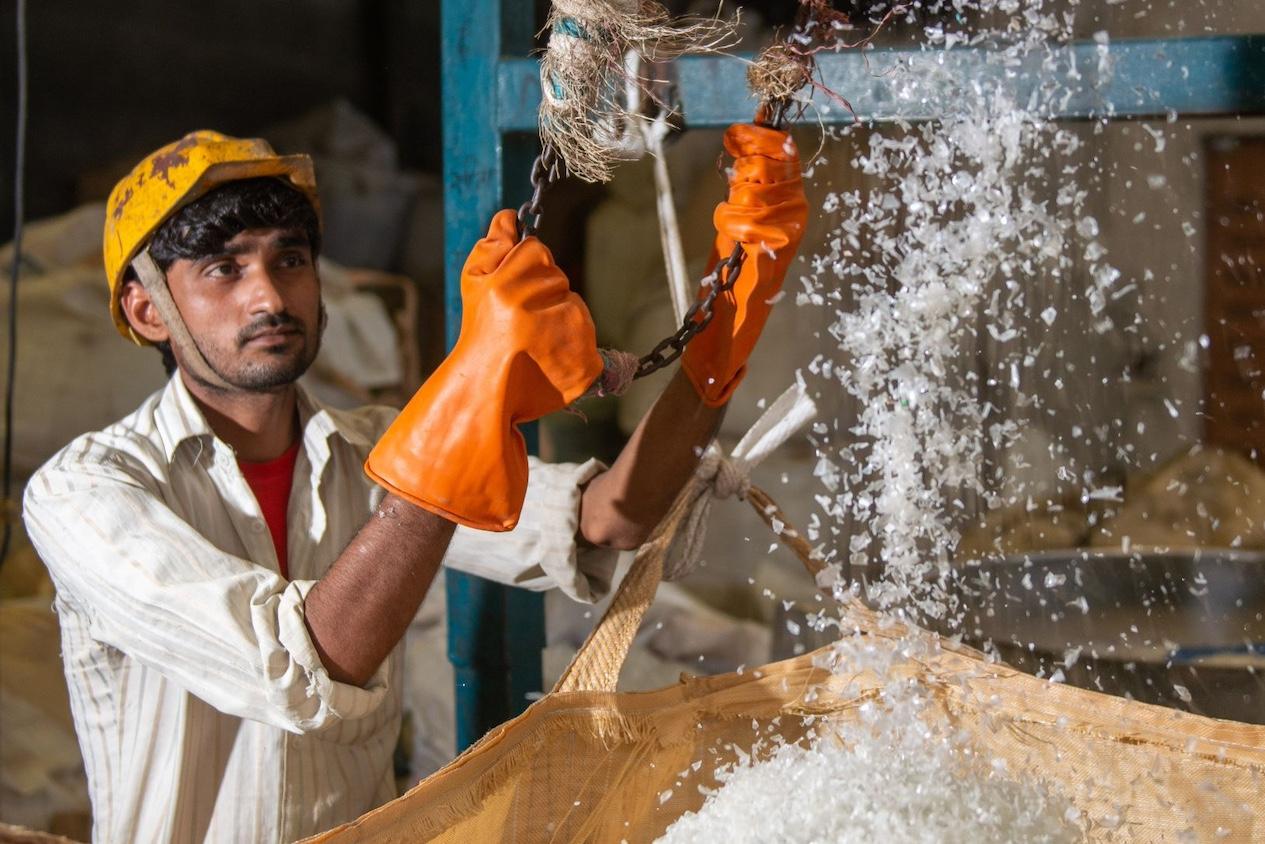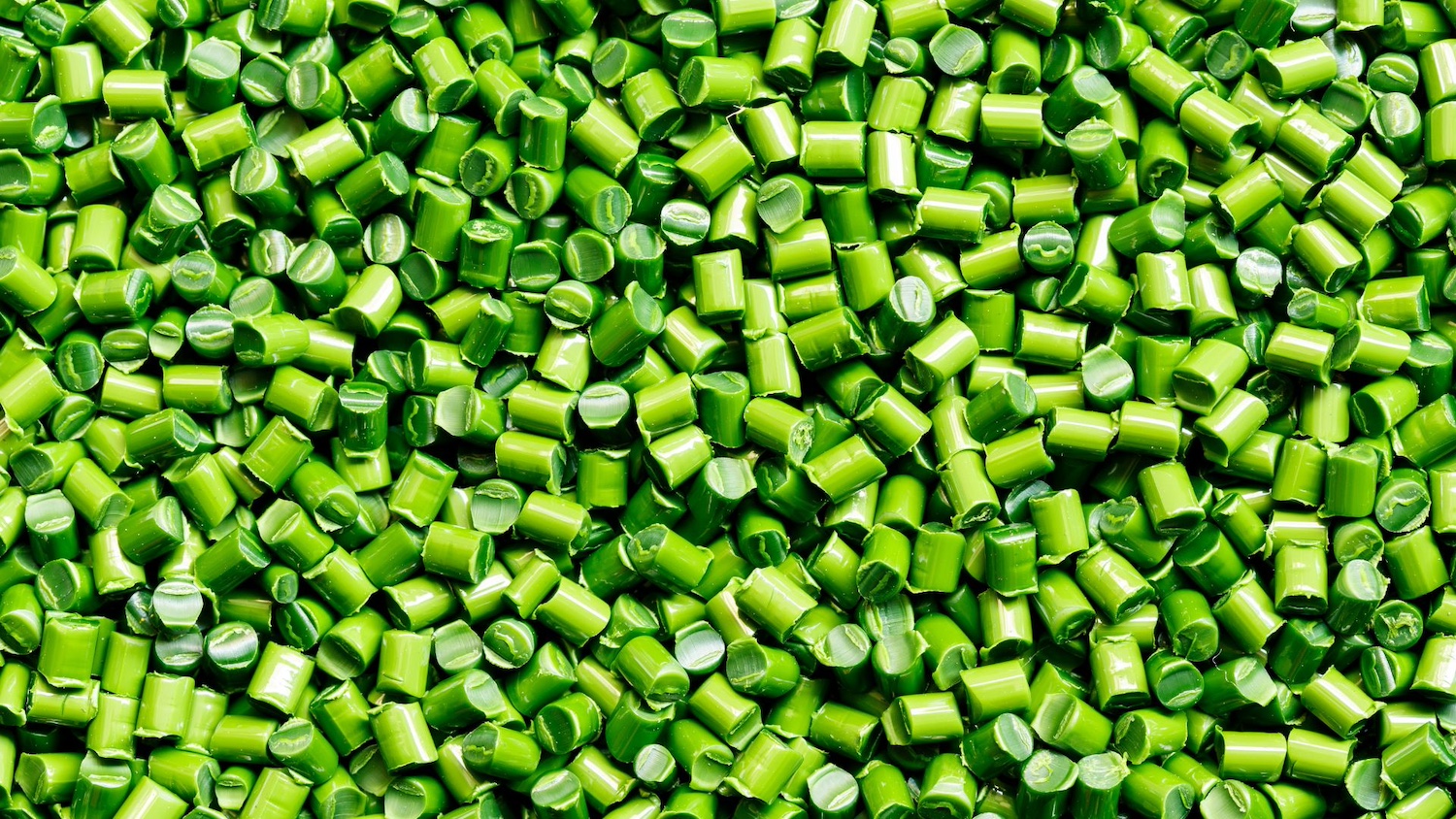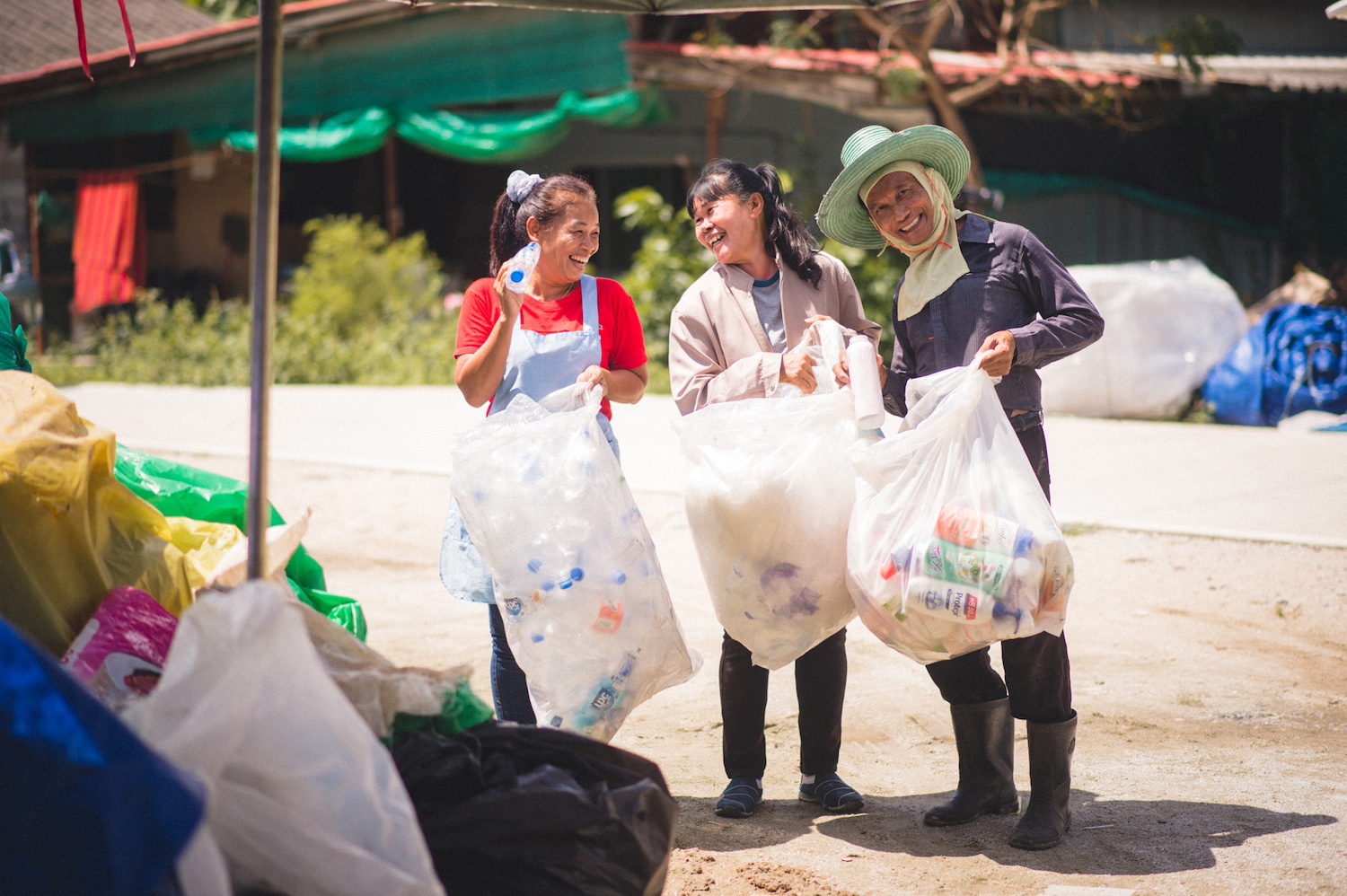
A worker at a PCX Markets project partner in Indonesia in the midst of the plastic recycling process. (Image courtesy of PCX Markets.)
PCX Markets recently launched an initiative that allows producers to purchase verified recycled plastic resins to turn into new products. Plastic waste is a growing problem, particularly in emerging economies, but despite best efforts, only 9 percent of global plastic waste gets recycled. Major funding and policy are needed to build recycling and waste infrastructure — a gap that could require over $1 trillion by 2040, according to the World Bank.
As a plastic responsibility platform connecting corporations to cleanup projects and responsible producers, PCX Markets is trying to address part of the waste problem and help bridge the recycling funding gap.
“It’s not going to be one magic lever that will solve the plastic waste crisis,” said Sebastain DiGrande, CEO of PCX Markets. That includes recycling solutions, finance mechanisms and using alternative materials.
Humans love plastic. Scratch that, producers and consumers love plastic. It’s moldable, lightweight, impressively strong and cheap.
Estimates vary, but research shows roughly 268 million metric tons of plastic waste were generated in 2022. Close to 30 million metric tons of that leaked into the environment.
Plastic is great during its period of use, which generally lasts between a few seconds and a few decades. After that, 91 percent of plastics are never used again. They become eye sores in the environment, hazards — or even islands — in the ocean, emit toxic fumes during incineration, or leak microplastics into our environments, food sources and organs. Fixing this problem requires solutions that reduce plastic production, but downstream interventions are also needed to clean up the plastic entering our environment.

PCX Markets’ circular solution to plastic waste
Built on the back of its plastic credit system, from which businesses can purchase credits connected to verified plastic waste reduction projects, PCX Markets’ new Circular Plastic initiative now allows companies to not only fund plastic cleanup projects, but also purchase recycled plastic resins from those projects in the form of pellets, flakes, or powder, reducing their reliance on virgin plastics to make their products.
Partnering with eight projects in four different countries, PCX Marktets can provide 70,000 metric tons of recycled plastic resin to producers per year. The projects, based in India, Thailand, the Philippines and Indonesia, must pass strict certification requirements. PCX Markets plans to expand the number of projects and countries included in the program soon.
Many companies are searching for high-quality, verified, post-consumer recycled plastic. They want to know about how projects are audited and what the socioeconomic benefits are, DiGrande said. The typical recycled plastics brokers often can’t provide that information, but PCX Markets provides transparency and third-party auditing of its recycled plastics supply chain.
Major funding is needed to bring adequate recycling infrastructure to emerging economies, and it isn’t just about developing the technology and building the recycling plants. Recycling depots also need a steady stream of plastic waste.
One of the company’s recycling partners in Thailand had to shut down its facility, not because it didn’t have demand for recycled pellets, but because it could only operate at 15 percent capacity. It didn’t have access to enough plastic waste.
“Projects need consistent funding for plastic to be collected, sorted, bailed and cleaned,” DiGrande said. “That’s all part of the upstream process to get material into the factory.” Plastic credits help fund that part of the recycling process.

It’s one approach, but many are needed
Plastic credits is an emerging industry that has attracted much criticism. One plastic credit is equal to one metric ton of post-consumer plastic waste collected and processed. While the principle of getting companies to pay for plastic cleanup may be sound, some critics question the authenticity of plastic cleanup efforts and corporate environmental claims.
Standards bodies like the climate action and sustainable development standards nonprofit Verra and PCX Markets provide some assurance for plastic credits buyers that projects meet minimum standards like environmental and social safeguards. They also confirm accounting methods, measurement accuracy, and ensure additional plastic waste removal above normal levels. Still, some experts don’t buy the hype.
“This focus on downstream funding, while there’s certainly a need, takes attention away from upstream funding, which is going to be much more effective,” said Sangcheol Moon, plastics researcher at the University of California, Berkeley. Critics also argue that the lack of universal standards undermines trust in the system and corporate claims.
As the development of standards grows, the margin where insincere, opportunistic players can operate shrinks. PCX Markets discourages companies from using any sort of net-zero-related terms to describe their plastic use, even if they are buying verified plastic credits for each ton they produce.
“We are very clear with our corporate partners that you should not say that you have a net zero plastic footprint,” DiGrande said. “It’s a good step forward, but it’s still plastic, and it’s still going to end up back in the waste stream.”
A range of solutions is needed to address the plastic crisis. PCX Markets maintains that this is just one tool in the toolbox.

Andrew Kaminsky is a freelance writer with no fixed location. He travels all corners of the globe learning about the different groups that call this planet home, seeing natural wonders, and sharing laughs with the people he finds along the way. An alum of the University of Winnipeg's International Development program, Andrew is particularly interested in international relations and sustainable development. In his spare time you are likely to find Andrew engaging in anything sport-related, or finding common ground with new friends over a craft beer.














